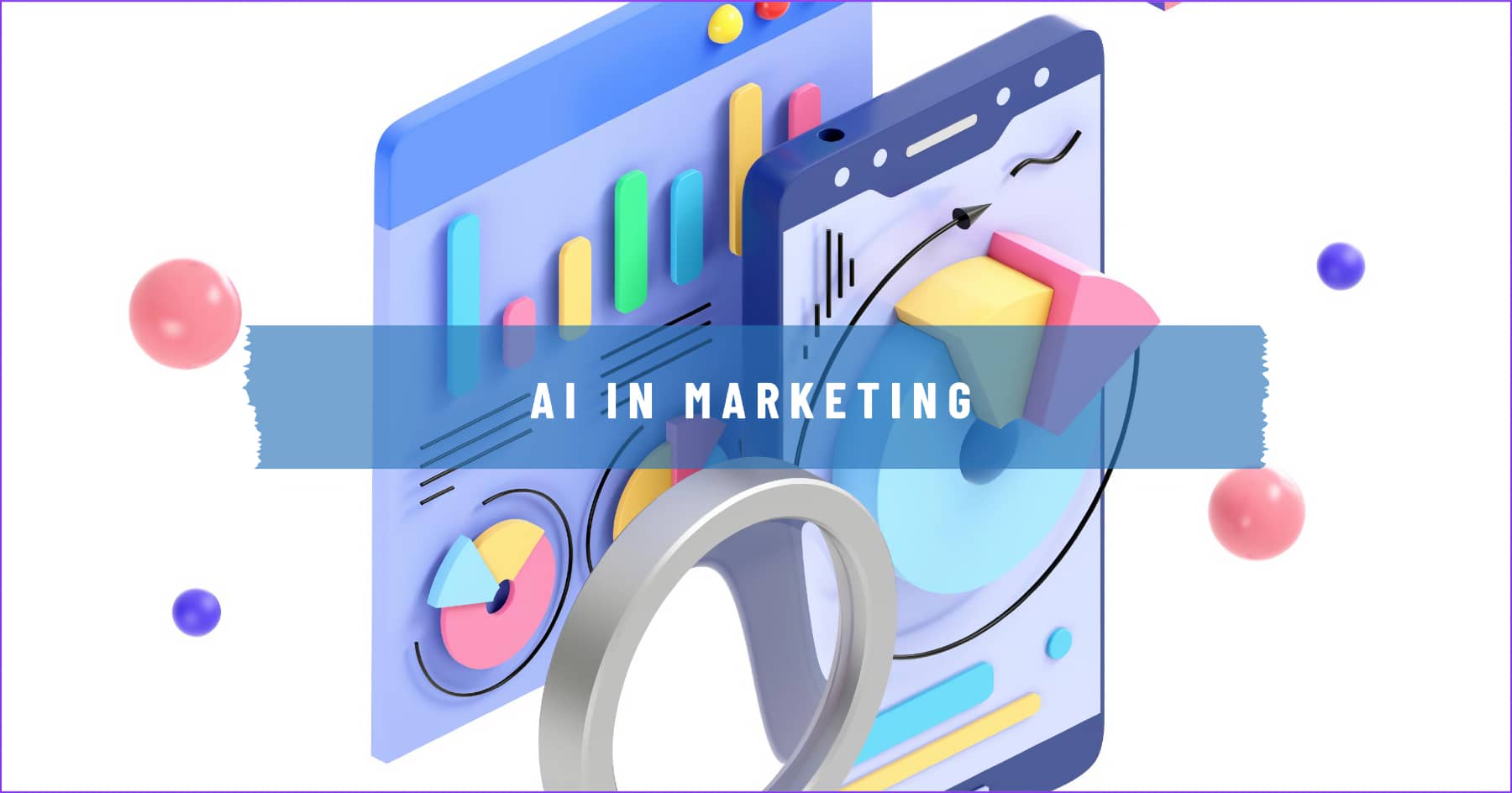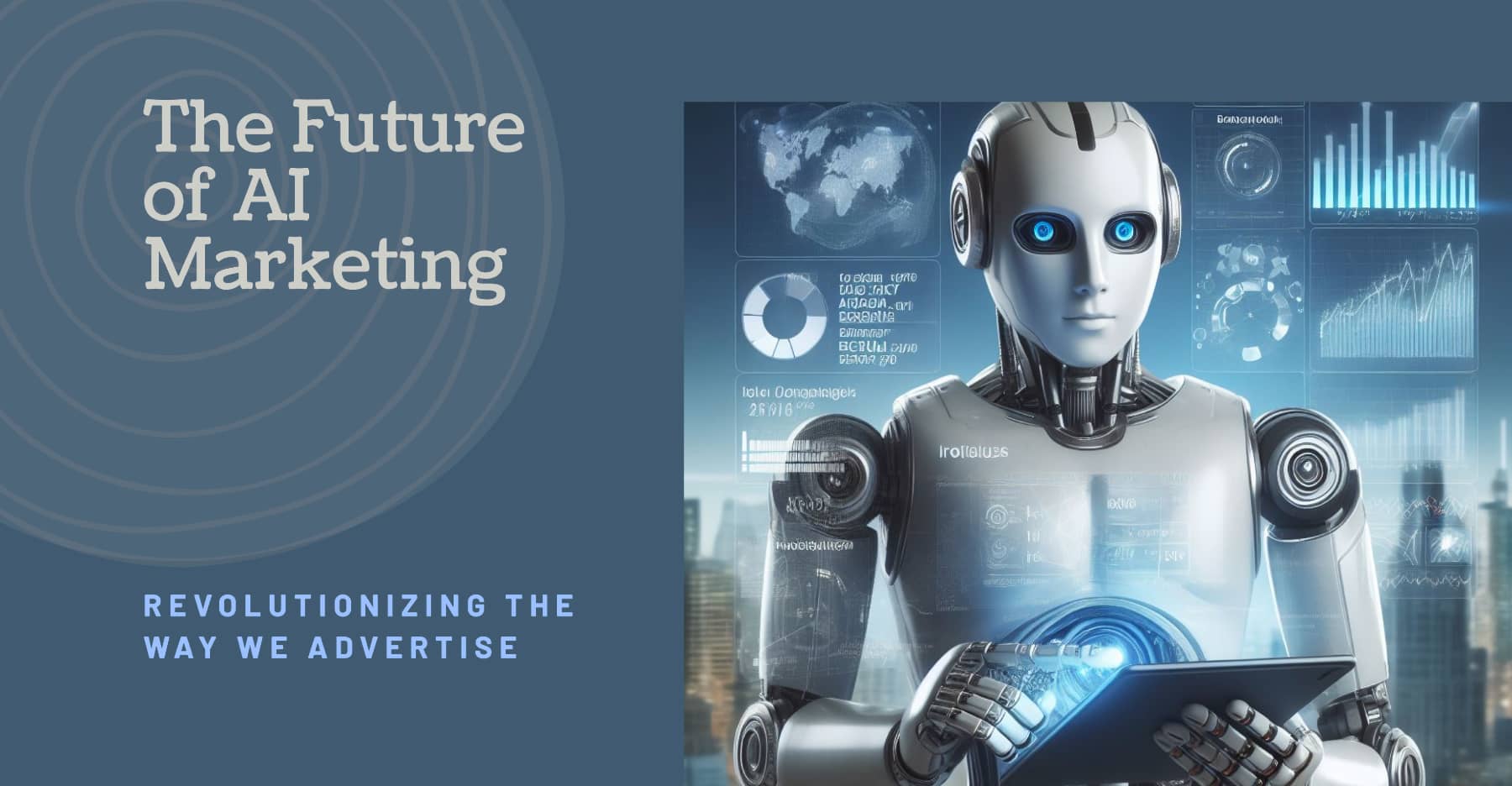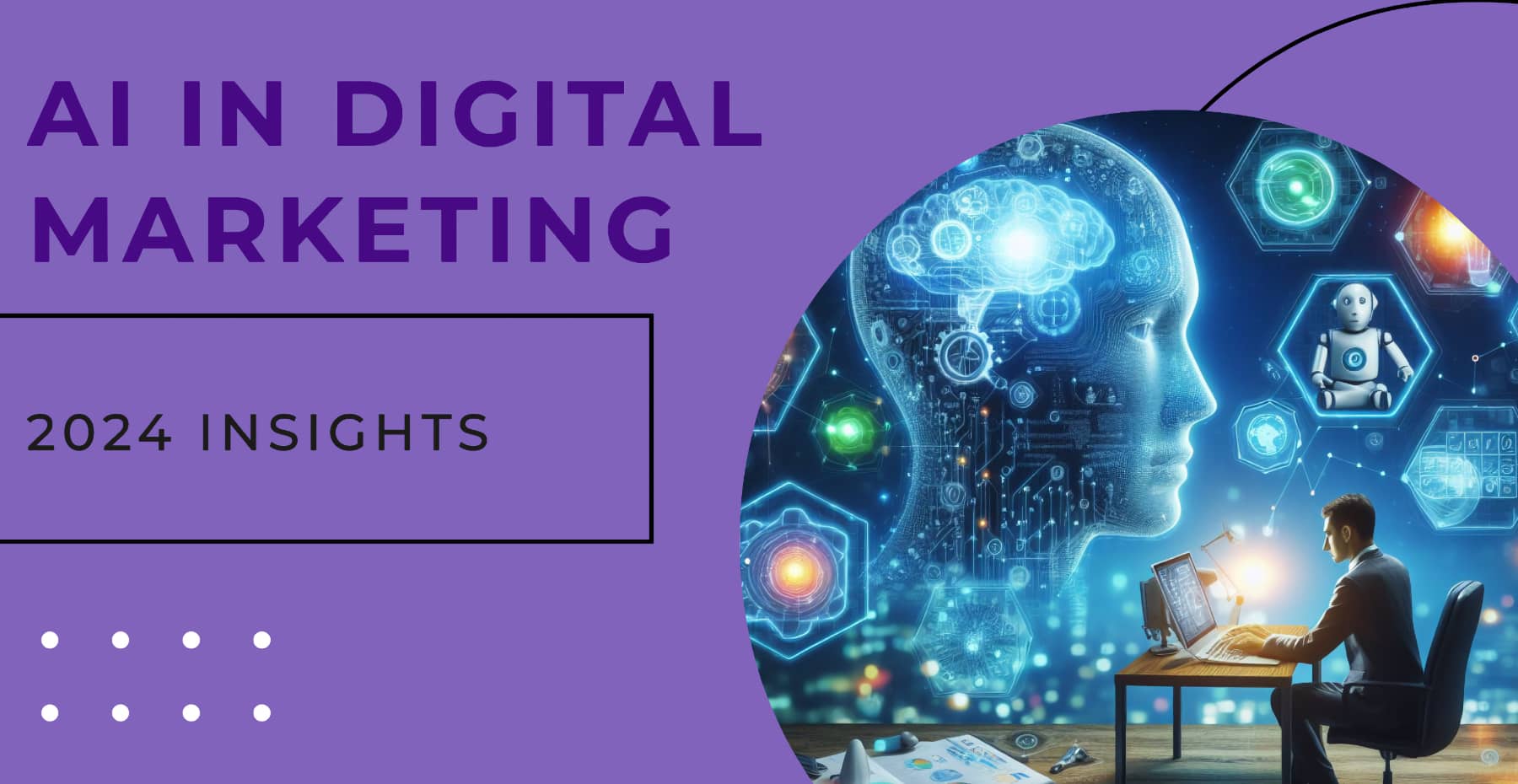How AI is Revolutionizing Marketing: An In-Depth Exploration
In today's rapidly evolving digital landscape, artificial intelligence (AI) has emerged as a game-changer for businesses across industries. With its ability to process vast amounts of data, identify patterns, and make data-driven decisions, AI is transforming the way companies approach marketing. As a result, more and more businesses are leveraging AI to enhance their marketing strategies, personalize customer experiences, and drive growth. In this article, we'll take an in-depth look at how AI is used in marketing and explore its various applications, benefits, and future potential.
The impact of AI on marketing is undeniable. According to a recent study by PwC, AI is expected to contribute more than $15 trillion to the global economy by 2030, with marketing being one of the key areas where AI will drive significant value. From personalized content creation to marketing automation and predictive analytics, AI is empowering marketers to make smarter, more informed decisions and deliver highly targeted, effective campaigns.
AI Application in Marketing | Description |
Personalization | Tailoring content, recommendations, and experiences based on individual preferences and behavior |
Content Generation | Automating the creation of engaging blog posts, social media content, and email campaigns |
Audience Segmentation | Dividing customers into distinct groups based on shared characteristics for targeted marketing |
Predictive Analytics | Analyzing historical data to forecast future customer behavior and market trends |
As we explore the various ways AI is used in marketing, it's essential to understand the key benefits it offers:
Enhanced Customer Insights: AI-powered tools can analyze vast amounts of customer data, providing marketers with deep insights into customer behavior, preferences, and intent.
Improved Efficiency: By automating repetitive tasks and streamlining workflows, AI enables marketing teams to focus on strategic initiatives and creative problem-solving.
Increased ROI: With its ability to optimize campaigns in real-time and deliver personalized experiences, AI helps marketers maximize their return on investment (ROI).
Throughout this article, we'll delve into the specific applications of AI in marketing, including personalization, content marketing, marketing automation, and predictive analytics. We'll also discuss the future of AI in marketing and explore emerging trends and ethical considerations. By the end of this piece, you'll have a comprehensive understanding of how AI is revolutionizing marketing and how you can leverage its power to take your marketing efforts to the next level.
What is AI Marketing?
AI marketing is the application of artificial intelligence (AI) technologies to enhance and optimize marketing strategies. By leveraging machine learning (ML), natural language processing (NLP), and other AI techniques, marketers can gain valuable insights into customer behavior, automate tasks, and deliver personalized experiences at scale.
At its core, AI marketing involves using data and algorithms to make more informed decisions and improve the effectiveness of marketing efforts. By analyzing vast amounts of customer data, AI-powered tools can identify patterns, predict future behavior, and provide actionable insights that help marketers create targeted campaigns and optimize their strategies for maximum impact.
Benefits of AI Marketing
The adoption of AI in marketing offers numerous benefits, including:
Personalization: AI enables marketers to deliver highly personalized experiences by tailoring content, recommendations, and offers based on individual preferences and behavior.
Automation: By automating repetitive tasks such as email nurturing, lead scoring, and ad optimization, AI frees up marketers' time to focus on strategic initiatives and creative problem-solving.
Data-Driven Insights: AI-powered analytics tools provide marketers with deep insights into customer behavior, sentiment, and intent, enabling them to make data-driven decisions and optimize their strategies accordingly.
Improved Efficiency: AI streamlines marketing workflows, reduces manual effort, and improves overall efficiency, allowing teams to accomplish more with fewer resources.
Increased ROI: By optimizing campaigns in real-time, delivering personalized experiences, and improving targeting accuracy, AI helps marketers maximize their return on investment (ROI).
AI Marketing Benefit | Description |
Personalization | Tailoring experiences based on individual preferences and behavior |
Automation | Streamlining repetitive tasks and workflows |
Data-Driven Insights | Providing deep insights into customer behavior and sentiment |
Improved Efficiency | Reducing manual effort and optimizing marketing processes |
Increased ROI | Maximizing return on investment through optimization and personalization |
AI marketing encompasses a wide range of applications, from content generation and audience segmentation to predictive analytics and chatbots. By leveraging these AI-powered tools and techniques, marketers can gain a competitive edge, improve customer engagement, and drive better business outcomes.
As AI continues to evolve and become more sophisticated, its impact on marketing will only grow. Companies that embrace AI and integrate it into their marketing strategies will be well-positioned to succeed in an increasingly data-driven and customer-centric landscape.
In the following sections, we'll explore the various ways AI is used in marketing, including personalization, content marketing, marketing automation, and predictive analytics. We'll also discuss real-world examples of how businesses are leveraging AI to transform their marketing efforts and drive growth.

How is AI Used in Marketing?
AI is transforming the marketing landscape, enabling businesses to deliver more personalized, engaging, and effective campaigns. From content creation to customer segmentation and predictive analytics, AI is being used in a variety of ways to enhance marketing strategies and drive better results. Let's explore some of the key applications of AI in marketing.
A. Personalization
One of the most significant ways AI is used in marketing is through personalization. By leveraging customer data and machine learning algorithms, AI-powered tools can analyze individual preferences, behaviors, and interactions to deliver tailored experiences across various touchpoints.
Examples of AI-driven personalization include:
Chatbots and Virtual Assistants: AI-powered chatbots and virtual assistants can provide personalized recommendations, answer customer queries, and guide users through the buying process based on their specific needs and preferences.
Dynamic Content Creation: AI algorithms can analyze user behavior and preferences to generate personalized content, such as blog posts, social media updates, and email campaigns, that resonate with individual customers.
Targeted Advertising: AI can optimize ad targeting by analyzing customer data, such as browsing history and purchase behavior, to deliver highly relevant ads that are more likely to convert.
B. Content Marketing
AI is also revolutionizing content marketing by enabling marketers to create and optimize content at scale. With the help of AI-powered tools, businesses can generate high-quality, engaging content that resonates with their target audience and drives better results.
Examples of AI in content marketing include:
Content Generation: AI-powered tools like GPT-4 can automatically generate blog posts, social media updates, and product descriptions based on input data and parameters.
Content Optimization: AI algorithms can analyze existing content and provide recommendations for optimizing it for search engines, readability, and engagement.
Topic and Keyword Research: AI can help identify trending topics and relevant keywords based on user search queries and competitors' content, enabling marketers to create more targeted and effective content strategies.
C. Marketing Automation
AI is also transforming marketing automation by streamlining repetitive tasks and enabling marketers to deliver more personalized, timely, and relevant communications.
Examples of AI in marketing automation include:
Email Marketing: AI can analyze customer data to create targeted email campaigns, optimize send times, and personalize content for individual recipients.
Lead Scoring: AI algorithms can analyze lead behavior and engagement to automatically score and prioritize leads based on their likelihood to convert.
Campaign Optimization: AI can analyze campaign performance data in real-time and make automated adjustments to optimize targeting, bidding, and creative elements for better results.
D. Predictive Analytics
Another critical application of AI in marketing is predictive analytics. By analyzing historical data and using machine learning algorithms, AI-powered tools can predict future customer behavior, trends, and outcomes, enabling marketers to make more informed decisions and proactive strategies.
Examples of AI in predictive analytics include:
Customer Churn Prediction: AI can analyze customer data to identify patterns and risk factors associated with churn, enabling businesses to take proactive measures to retain at-risk customers.
Customer Lifetime Value Prediction: AI can predict the long-term value of individual customers based on their behavior and transactions, enabling marketers to prioritize retention and acquisition efforts.
Demand Forecasting: AI can analyze historical sales data, market trends, and external factors to predict future demand for products or services, enabling businesses to optimize inventory and production planning.
AI Application | Description | Examples |
Personalization | Tailoring experiences based on individual preferences and behavior | Chatbots, dynamic content, targeted advertising |
Content Marketing | Automating content creation and optimization | Content generation, optimization, topic research |
Marketing Automation | Streamlining repetitive tasks and delivering personalized communications | Email marketing, lead scoring, campaign optimization |
Predictive Analytics | Analyzing historical data to predict future behavior and outcomes | Churn prediction, CLV prediction, demand forecasting |
By leveraging these AI-powered applications, marketers can deliver more effective, personalized, and data-driven campaigns that drive better engagement, conversions, and overall business results. As AI technologies continue to evolve and mature, we can expect to see even more innovative and transformative use cases emerge in the marketing landscape.

The Future of AI Marketing
As AI technologies continue to advance and become more accessible, the future of AI marketing looks incredibly promising. Marketers can expect to see even more sophisticated and innovative applications of AI in the coming years, enabling them to deliver more personalized, engaging, and effective campaigns at scale.
Some of the emerging trends and advancements in AI marketing include:
1. Voice Search Optimization
With the growing popularity of voice assistants like Siri, Alexa, and Google Assistant, optimizing content for voice search is becoming increasingly important. AI-powered tools can help marketers analyze user search queries and intent to create content that is more likely to rank well for voice search results.
2. AI-Powered Marketing Attribution
Attribution models help marketers understand which touchpoints and channels are driving conversions and revenue. AI-powered attribution models can analyze vast amounts of data from multiple sources to provide more accurate and granular insights into the customer journey, enabling marketers to optimize their strategies and allocate resources more effectively.
3. Ethical AI in Marketing
As AI becomes more prevalent in marketing, it's essential to consider the ethical implications and ensure responsible use of the technology. This includes issues such as data privacy, bias, and transparency. Marketers will need to develop clear guidelines and best practices for using AI in a way that is both effective and ethical.
Trend | Description |
Voice Search Optimization | Optimizing content for voice search queries using AI |
AI-Powered Attribution | Using AI to analyze data and provide more accurate attribution insights |
Ethical AI | Developing guidelines and best practices for responsible AI use in marketing |
Other potential future applications of AI in marketing include:
Emotional AI: Analyzing customer emotions and sentiment to create more empathetic and engaging campaigns.
Augmented Reality (AR) and Virtual Reality (VR): Using AI to create immersive and personalized AR/VR experiences for customers.
Predictive Customer Service: Leveraging AI to anticipate customer needs and proactively provide support and solutions.
As AI continues to evolve, it will be crucial for marketers to stay up-to-date with the latest advancements and best practices. This may involve investing in AI-powered tools and platforms, building in-house AI expertise, and collaborating with AI specialists to develop custom solutions.
However, it's important to remember that AI is not a silver bullet. While it can certainly enhance and streamline marketing efforts, it should be used in conjunction with human creativity, strategic thinking, and emotional intelligence. The most successful marketers will be those who can effectively leverage AI to augment their skills and expertise, rather than relying on it entirely.
Ultimately, the future of AI in marketing is bright, and the possibilities are endless. By staying informed, experimenting with new technologies, and maintaining a customer-centric approach, marketers can harness the power of AI to drive better results and create more meaningful connections with their audiences.
Embracing the AI Revolution in Marketing
In today's rapidly evolving digital landscape, artificial intelligence (AI) is transforming the way businesses approach marketing. From personalization and content creation to automation and predictive analytics, AI is enabling marketers to deliver more targeted, engaging, and effective campaigns at scale.
By leveraging AI-powered tools and techniques, marketers can gain deeper insights into customer behavior, preferences, and intent, and use that knowledge to create highly personalized experiences across various touchpoints. AI is also streamlining marketing processes, reducing manual effort, and freeing up marketers' time to focus on strategic initiatives and creative problem-solving.
As AI technologies continue to advance, we can expect to see even more innovative and transformative applications in the marketing landscape. Emerging trends such as voice search optimization, AI-powered attribution models, and ethical AI practices will shape the future of marketing and provide new opportunities for businesses to connect with their audiences.
However, it's crucial to remember that AI is not a replacement for human creativity and strategic thinking. The most successful marketers will be those who can effectively leverage AI to augment their skills and expertise, while maintaining a customer-centric approach and adapting to the ever-changing digital landscape.
Embracing the AI revolution in marketing is no longer a choice; it's a necessity. By staying informed, experimenting with new technologies, and integrating AI into their strategies, marketers can unlock new levels of efficiency, personalization, and performance, and ultimately drive better business outcomes.
The future of marketing is AI-powered, and the time to start leveraging its potential is now. As the technology continues to evolve and mature, marketers who embrace AI will be well-positioned to succeed in an increasingly competitive and data-driven world. So, let's harness the power of AI to create more meaningful connections, deliver exceptional customer experiences, and drive unparalleled marketing success.


